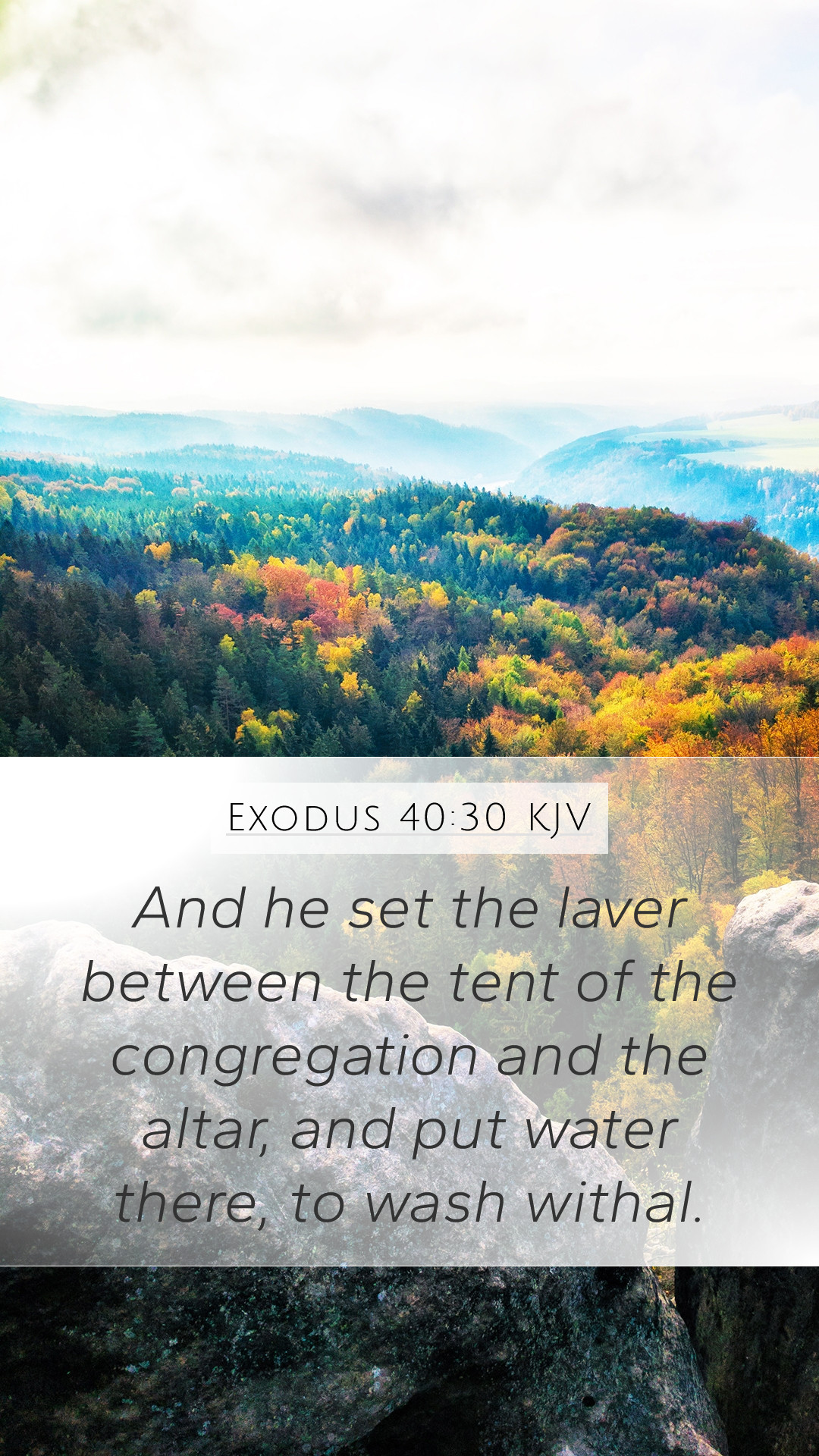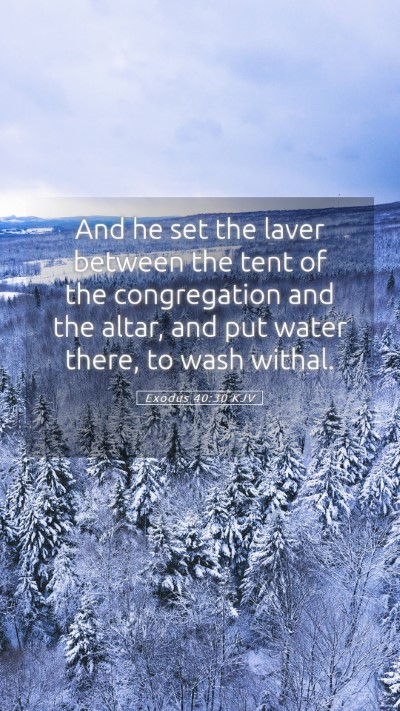Understanding Exodus 40:30
Exodus 40:30 states: "And he set the laver between the tent of the congregation and the altar, and put water there, to wash withal." This verse captures a pivotal moment in the establishment of Israel's worship practices, specifically concerning the sacrificial system and the consecration of priests.
Bible Verse Meanings
This verse provides insight into the ritualistic practices ordained by God for His people, emphasizing the importance of purification before approaching Him. Here’s a combined interpretation based on public domain commentaries:
- Matthew Henry: Henry highlights that the laver represents a necessary means of purification. He emphasizes that God requires His people to be clean before engaging in worship, illustrating the principle that holiness must precede service.
- Albert Barnes: Barnes elaborates on the placement of the laver, indicating that it was strategically located to remind the priests of their need for cleansing. He suggests that this physical arrangement serves as a metaphor for the spiritual cleansing required to approach God.
- Adam Clarke: Clarke delves into the significance of water in the process of sanctification, noting that it is a symbol of both physical cleanliness and spiritual renewal. He posits that this operational aspect of the laver is crucial for understanding the comprehensive nature of worship in Israel.
Bible Verse Interpretations
This verse is interpreted as a foundational aspect of the ritual life of the Israelites. The laver’s purpose is to serve as a physical reminder that purity is vital for acceptable worship:
- Symbolism of the Laver: The laver symbolizes the need for both moral and ceremonial purity. As the priests washed their hands and feet, it signified the need to cleanse themselves before performing sacred duties.
- Historical Context: This instruction occurs after the establishment of the tabernacle, signifying a new phase in Israelite worship following their exodus from Egypt. The detailed specifications granted by God underline His holiness and the necessity for reverence in worship.
Understanding Scripture
In our quest for Bible verse understanding, the significance of this verse expands beyond its immediate context. It illustrates the continuous theme of purification throughout the Scriptures:
- New Testament Reflection: In the New Testament, the theme of washing and purification is echoed in passages that emphasize the role of Christ in cleansing His followers (e.g., John 13:10).
- Modern Application: For modern readers, this passage serves as a reminder of the spiritual cleansing needed to engage authentically in worship and service to God.
Significance of Exodus 40:30
Understanding the significance of this verse entails grasping its implications for daily life and spiritual practice. As one navigates through Bible study insights, it fosters an understanding of personal sanctification:
- Application for Today: Just as the priests were required to be clean, believers today are called to maintain spiritual purity through confession and repentance, thus preparing themselves for meaningful worship.
- Lessons on Holiness: The verse underscores a broader biblical theme that holiness is not merely an Old Testament requirement but a continuous mandate for all believers, as seen in 1 Peter 1:16.
Bible Study Resources
For those engaged in online Bible study or group discussions, this verse can serve as a launching point for conversations about:
- Comparative analysis of Old Testament purification rites and their New Testament counterparts.
- The theological implications of cleansing in both covenant contexts.
- The practical application of ritual purity in relation to contemporary worship settings.
Cross References
This verse connects with several other passages which elucidate its importance:
- Exodus 29:4: The anointing and consecration of the priests.
- Leviticus 16:4: The requirement for purity on the Day of Atonement.
- 1 Peter 2:9: The call for believers to be a royal priesthood.
Conclusion
Exodus 40:30 represents not just a ritualistic practice but an invitation to deeper spiritual reflection and transformation. Whether engaging in personal Bible study lessons, seeking Bible study guides, or exploring Bible study topics, this verse emphasizes the importance of preparing our hearts and lives for communion with God.


